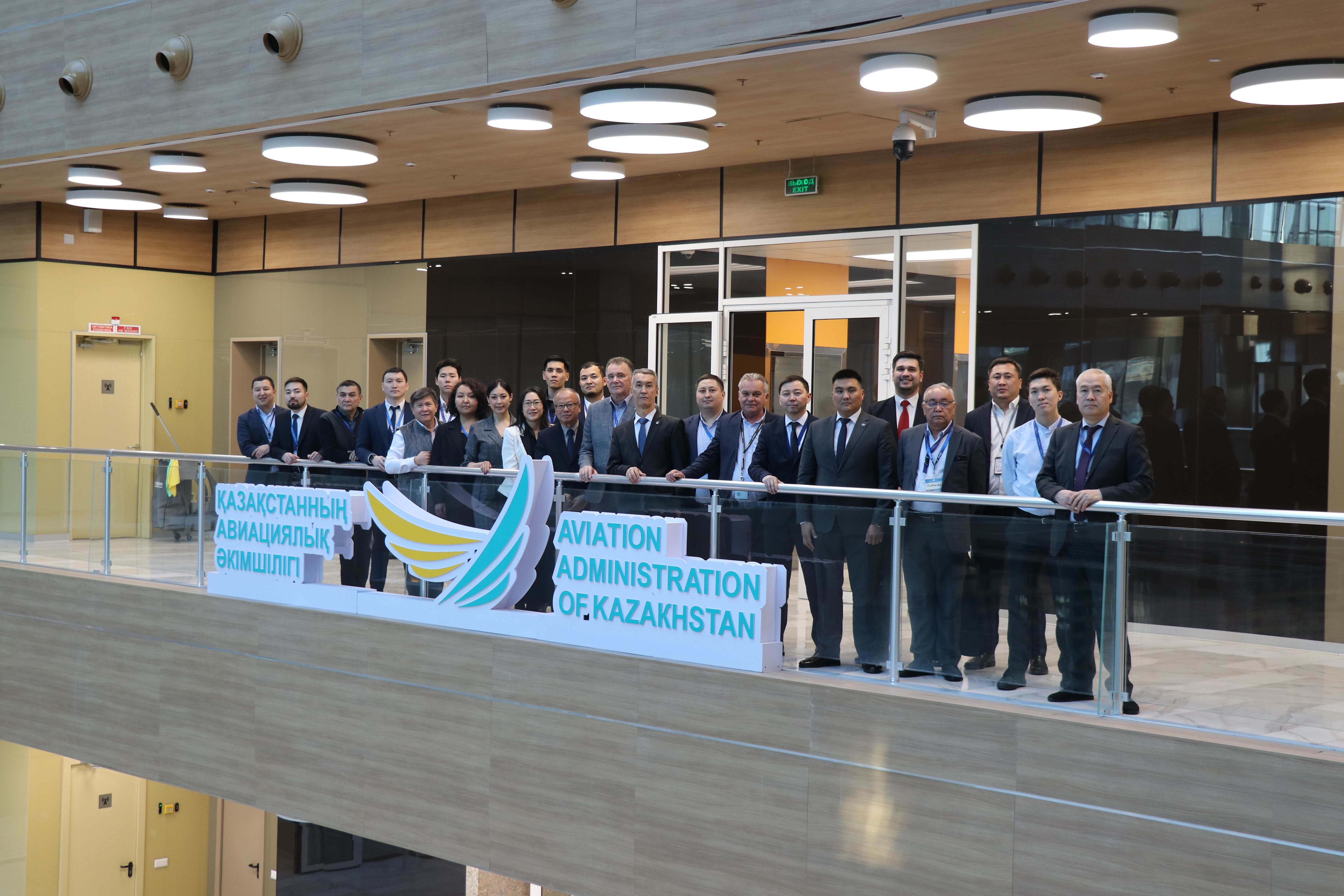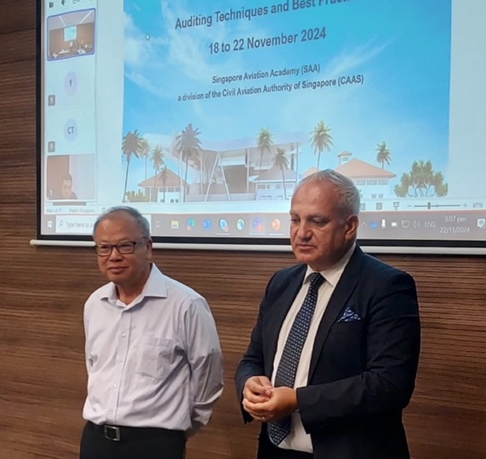09/12/2024


Eurasian Civil Aviation Conference (EACAC) Excellence Center delivered its first course in collaboration with the Singapore Aviation Academy (SAA), the training arm of the Civil Aviation Authority of Singapore (CAAS), at the Aviation Administration of Kazakhstan (AAK) in Astana from November 18 to 22, 2024. This five-day Auditing Techniques and Best Practices course marked a significant milestone for AAK and CAAS, aiming to strengthen aviation audit competencies across Central Asia. It attracted 30 participants from Kyrgyzstan, Tajikistan, and Uzbekistan, focusing on essential auditing techniques and methodologies to ensure high standards of aviation safety and efficiency.
Led by expert instructor Kong Cheong Tuck from SAA, the course provided practical skills to assess organizational processes and maintain compliance with international aviation standards. Participants also had the opportunity to exchange knowledge and experiences, enhancing regional collaboration and competency in aviation auditing. This initiative is part of the broader effort to build a skilled workforce capable of meeting the evolving needs of the aviation industry in the region.
A key highlight of the event was the personal involvement of General Director Catalin Radu, whose leadership and dedication were instrumental in the success of this project. His vision for regional collaboration and capacity building played a crucial role in setting up and launching the course.
Mr. Radu, General Director of the AAK, commented: "This course represents the first step toward fostering stronger cooperation and developing critical aviation audit skills across Central Asia. The exchange of knowledge is vital to improving safety and efficiency standards in the region, and I am proud to have played a role in making this initiative a reality. Our commitment to regional collaboration will continue to grow as we work together to strengthen the future of aviation in Central Asia."
Instructor Mr. Kong added: "CAAS is committed to supporting the development of the next generation of aviation professionals and to contribute to the enhancement of safety oversight capabilities for the Central Asia region. We are pleased to have this opportunity to share our experience, and to benefit from the interactions with the participants. This course sought to provide the participants with valuable insights and practical skills, and I hope that they can apply the skills directly to their work, ensuring safer and more efficient aviation operations in their respective countries."
The success of this pilot program sets a promising precedent for future training initiatives aimed at improving aviation safety and fostering closer cooperation across Central Asia.









